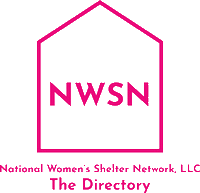Home Start, Inc.
San Diego, CA
Domestic Violence Shelters, Maternity Homes, Mental Health Facilities

Description
BEHAVIORAL HEALTH SERVICES:
Therapy Approaches
Behavioral Health Services at Home Start provides individual and family therapy services to children under 18 years of age across San Diego County. Services may be provided in the childs home, school, or via telehealth video as well as at one of our two Home Start locations (Mission Valley or El Cajon). These services are free of charge to child survivors of abuse, crime, or other traumatic events. Services in English and Spanish are available. Home Start therapists are trained in providing Parent-Child Interaction Therapy, Trauma-Focused Cognitive Behavior Therapy, and Play Therapy.
Parent-Child Interaction Therapy (PCIT)
PCIT is an early intervention evidence-based treatment model supported by more than 30 years of research. This modality is targeted to improve the relationship of a child (1-6 years old) with their caregivers, as well as to improve the childs emotional regulations and language development. PCIT is demonstrated to decrease defiance and physical aggression, as well as to address several other caregiver behavioral concerns. This treatment involves weekly, one to two-hour sessions for a period of 12-26 weeks, in which the therapist coaches the caregiver, via an earpiece/mic, as the caregiver & child interact through play. For more information on PCIT, please visit the PCIT International Website.
Trauma-Focused Cognitive Behavior Therapy (TF-CBT)
TF-CBT is an evidence-based treatment designed to help children (5-18 years old) heal from the impact of trauma. The interventions used in this treatment model teach children effective ways to respond to their thoughts and emotions related to the trauma and reduce or eliminate the potential for long-term effects. Providing parents with education regarding effects of trauma on children is an important part of treatment. Child Trauma Treatment Services.
Transitional Housing:
FYSB: FYSB is a transitional housing program that offers medium-term housing to single homeless pregnant/parenting Transitional Age Youth and their children. Participants must be between the ages of 18-21 with a maximum of two children. Participants can self-refer by contacting our intake email or dropping into one of our offices. Participants must contribute to a savings account and develop a housing exit plan.
Since the maximum length of stay is 18 months, participation in services is required.
Supportive services include case management, life skills, job search assistance, therapy, child development coaching, and school enrollment. FYSB offers participants support services that promote self-sufficiency and stability. Participants must abide by the Terms of Tenancy and contribute 30% of their income. Upon successful program exit, the participants who contribute to rent will receive a portion of their contribution to assist them with their transition.
CalOES XH: The CalOES XH Transitional Housing Program provides medium-term housing to single mothers ages 18- 24. Participants must be experiencing homelessness and pregnant/parenting with up to two children. Participants must also be survivors of domestic violence, human trafficking, or some other type of victimization.
Though not required, participation in services is highly encouraged to promote self-sufficiency like case management, life skills, therapy, and child development coaching. Participants must abide by the Terms of Tenancy and can stay up to 24 months. Participants work closely with their case managers to identify a safe and secure housing plan. Participants must contribute 30% of their income.
Traditional Housing Program+: The THP + program is for youth ages 18-23 who aged out of the foster care system. Youth can be single, pregnant, or parenting with up to two children. The County provides referrals, and participants can stay up to two years or until age 23.
Participants must engage in support services that promote self-sufficiency like work, school, life skills, and child development coaching. Participants must abide by the program's Terms of Tenancy and contribute 30% of their income. Regardless of the contribution amount, $50 monthly goes towards their emancipation check.
Upon successful program exit, participants are provided an emancipation check and offered the furniture bought by Home Start.
Domestic Violence Programs
To better meet the needs of San Diegos domestic violence victims, Home Start offers direct services to DV survivors. The Domestic Violence Advocate and Housing Specialist work with referrals offering housing stability services, advocacy, and legal navigation. The DV Housing Specialist will help locate safe housing, accompany survivors to housing appointments, act as a liaison with landlords, and assist with negotiating leases. The DV advocate connects clients to resources, accompanies the client to court, and provides outreach and education to community stakeholders. This program offers three types of financial assistance to meet survivors' needs paired with intensive case management. Survivors will also be connected to public assistance programs, provided referrals, and offered employment and education linkage.
Home Start's Domestic Violence Programs exist to better meet the needs of San Diegos domestic violence survivors as they seek safety and housing stability.
Survivors receive assistance at the level that is appropriate for their needs and can move up in assistance levels as needed and are provided with resources to connect them to public assistance and benefits programs such as CalFRESH, WIC, and employment services and training opportunities. A Domestic Violence Housing Specialist locates safe housing, accompanies survivors to housing appointments, acts as a liaison with landlords, and assists with negotiating leases. A Domestic Violence Advocate connects clients to resources and accompanies clients in court.
Intake Requirements
Food Services
Educational Services
Job/Training Services
Medical Services
Other Services
Contact Information
San Diego, CA

